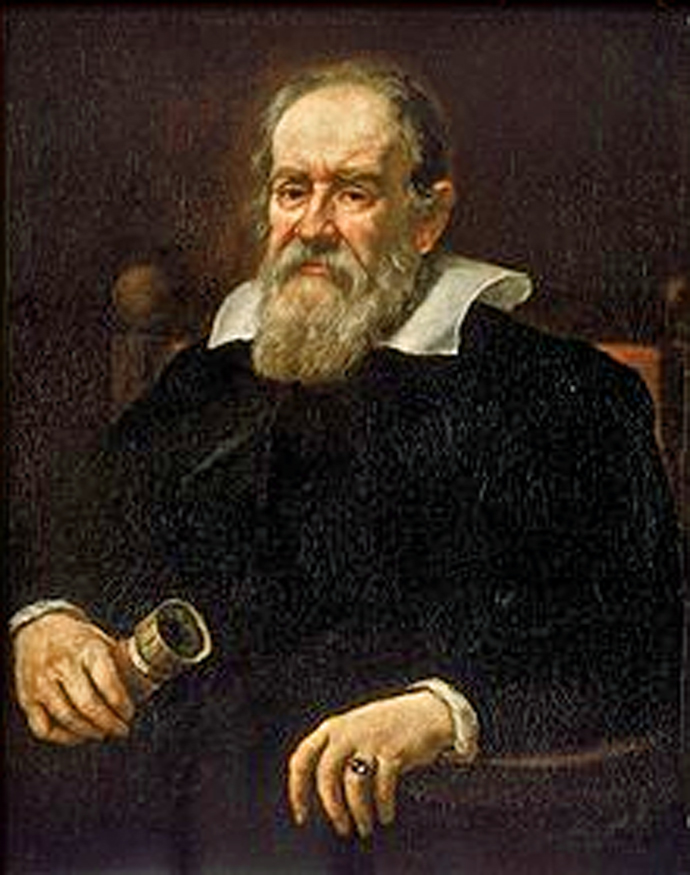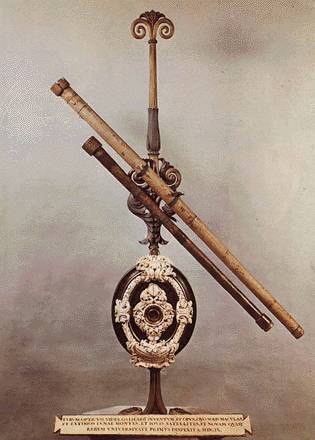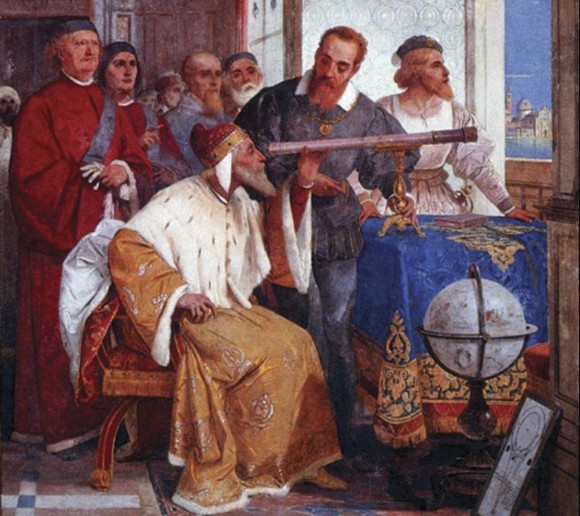All Truth Agrees with Common Sense
In 1600, a man named Giordano Bruno (1548-1600) was convicted of being a heretic for believing that the earth moved about the Sun, and that there were many plants throughout the universe where life--living creations of God--existed. Burno was burnt to death.
 Galileo Galilei believed that the Bible could never be wrong. However, he said, the interpreters of the Bible could make mistakes. At that time, only Church priests were allowed to interpret the Bible, or to define God's intentions. It was absolutely unthinkable for a mere member of the public to do so.
Galileo Galilei believed that the Bible could never be wrong. However, he said, the interpreters of the Bible could make mistakes. At that time, only Church priests were allowed to interpret the Bible, or to define God's intentions. It was absolutely unthinkable for a mere member of the public to do so.
Some of the Church clergy started accusing him of heresy. These accusations went to the Inquisition, the Church court, that investigated charges of heresy, and formally accused Galileo Galilei. This was a very serious matter. However, Galileo was found innocent of all charges, and cautioned not to teach the that the sun is the center of the solar system, with the planets, (including the earth), orbiting around it.
Galileo Galilei understood that; All truth agrees with common sense.
Galileo Galilei
 << Galileo's Telescope
<< Galileo's Telescope << Galileo, Telescope and others at Venice
<< Galileo, Telescope and others at VeniceGalileo began to strongly assert "that the earth and the other planets traveled around the sun which was called the Copernican theory." Almost all people and religious leaders of his day believed that the planets and the sun traveled around the earth.
In early 1616, Galileo was summoned [by the Roman Catholic Church] to Rome for a determination on the orthodoxy of his views that the earth rotated around the sun. Although he was cleared of charges of heresy, he was ordered not "to hold or defend" the idea that the earth rotated around the sun. That is, he could treat the theory hypothetically but not treat it as if it were true.
"Galileo promised submission to the church but added, "I do not feel obliged to believe that that same God who has endowed us with sense, reason, and intellect has intended us to forgo their use." (World History for Latter-Day Saints Vol.II p.47-50)
"Galileo announced that the earth revolved they passed the sentence of death upon him. They thought it was too bad to kill the poor fool who thought the world revolved and was round, so they concluded to let him off if he would pledge himself not to teach this doctrine. But he could not keep the truth back and quietly taught it. So, they arranged to make him lie down in front of the church where they were worshiping God on this stationary earth and let everybody step on him to show their contempt, and when they all had stepped on him, he got up and said, `Well, it goes around just the same.'" (World History for Latter-Day Saints Vol. II p. 47-50) (World Book Encyclopedia 1998) (About.com Inventore Galileo Galilei)